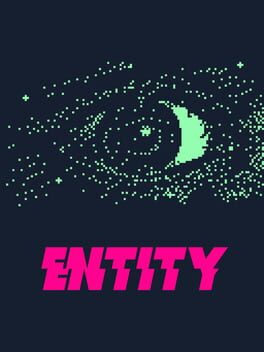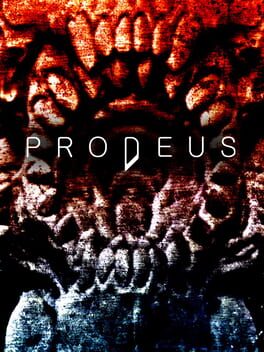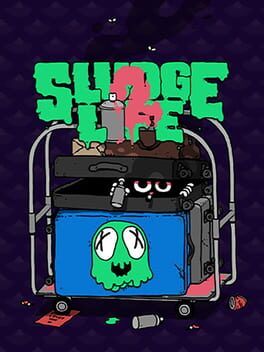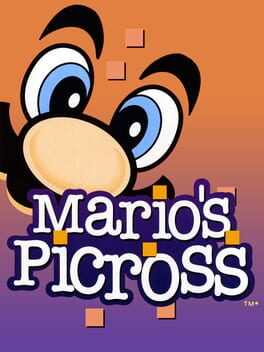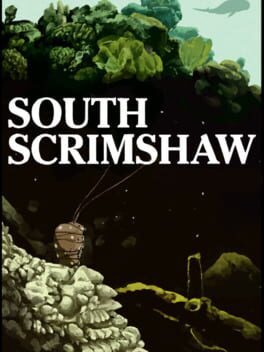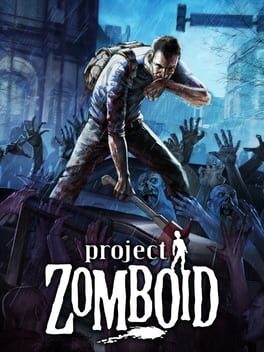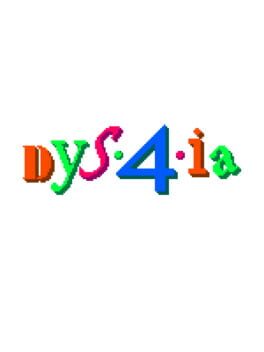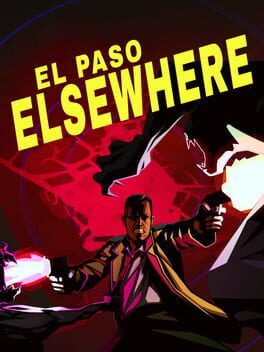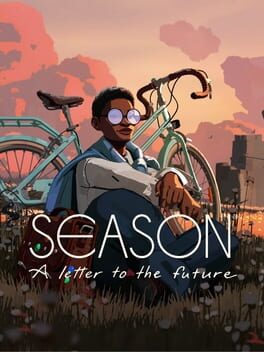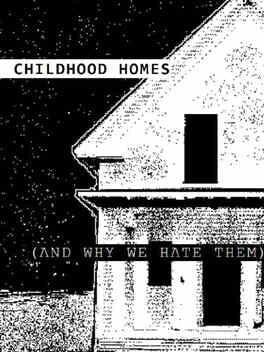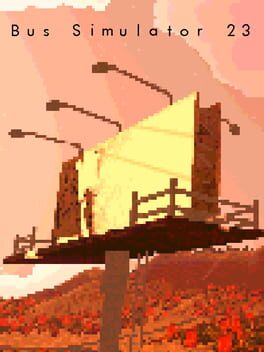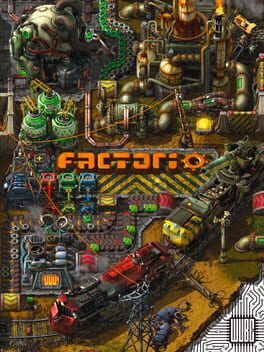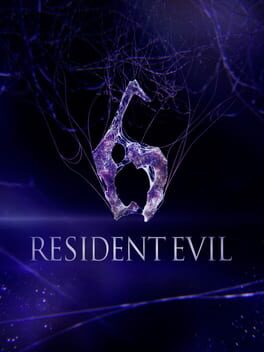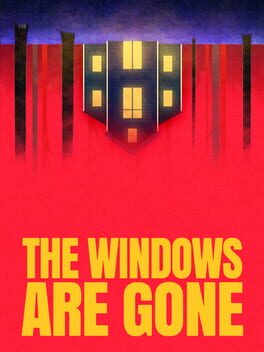JoeSchmoe
BACKER
2021
2020
I wrapped the campaign on this retro-FPS yesterday and am pretty torn on the whole package. It was clearly initially inspired by DOOM 2016, but seems to evolve into its own thing by the end of it. Level design is extremely inconsistent throughout, with the first 10 or so levels being quite dull before opening up to some genuinely great Tech Bases. Early on in their development, the team picked up Dragonfly, a very well-regarded DOOM mapper to work on levels. I don't know the level breakdown, but there's such a stark shift in map quality about a third of the way in that I wouldn't be surprised if that's where Dragonfly stepped in and took the reins.
Unfortunately Prodeus kinda fumbles a bit towards the end, with a weird insistence on swapping out actual ammo pickups in later levels with little pads that just passively refill your ammo infinitely? I really don't like this change, as it basically means that you can use your rocket launcher/grenade launcher or any other scarce-ammo weapon to your hearts content in the back stretch. If used sparingly - this could've been a cool cathartic moment, but unfortunately it just comes across as kinda bland.
My other big gripe with the game is the enemy roster and encounter design. They do better towards the end of the game, but on Normal difficulty, the encounters are never protracted enough to make them feel worthwhile. Their idea of ambushes throughout the whole campaign is dropping a few Imp-equivalents and calling it a day. It's just super limp. They borrow almost their entire enemy roster from DOOM, but I don't think they do as good a job of differentiating enemy roles as was done in their inspiration. In DOOM, every enemy type serves a very specific purpose, and they just never realize that in Prodeus.
Also, this is a minor gripe, but the dynamic music paired with short encounters means that tracks almost ALWAYS end too soon. It's WEIRD. Other than that, the game's presentation is great. It looks phenomenal - I really like the chunky pixel look they have going, and while it definitely suffers from visual clarity, the ways that enemies explode like viscera balloons is immensely satisfying in the moment.
Overall, it's a better game than it initially appears, but really doesn't stick the landing. I probably wouldn't recommend it to folks that aren't genre diehards, but I'd be lying if I said I wasn't excited for the upcoming DLC
Unfortunately Prodeus kinda fumbles a bit towards the end, with a weird insistence on swapping out actual ammo pickups in later levels with little pads that just passively refill your ammo infinitely? I really don't like this change, as it basically means that you can use your rocket launcher/grenade launcher or any other scarce-ammo weapon to your hearts content in the back stretch. If used sparingly - this could've been a cool cathartic moment, but unfortunately it just comes across as kinda bland.
My other big gripe with the game is the enemy roster and encounter design. They do better towards the end of the game, but on Normal difficulty, the encounters are never protracted enough to make them feel worthwhile. Their idea of ambushes throughout the whole campaign is dropping a few Imp-equivalents and calling it a day. It's just super limp. They borrow almost their entire enemy roster from DOOM, but I don't think they do as good a job of differentiating enemy roles as was done in their inspiration. In DOOM, every enemy type serves a very specific purpose, and they just never realize that in Prodeus.
Also, this is a minor gripe, but the dynamic music paired with short encounters means that tracks almost ALWAYS end too soon. It's WEIRD. Other than that, the game's presentation is great. It looks phenomenal - I really like the chunky pixel look they have going, and while it definitely suffers from visual clarity, the ways that enemies explode like viscera balloons is immensely satisfying in the moment.
Overall, it's a better game than it initially appears, but really doesn't stick the landing. I probably wouldn't recommend it to folks that aren't genre diehards, but I'd be lying if I said I wasn't excited for the upcoming DLC
2023
Just Wrapped on Sludge Life 2, 100%ing it along the way. Another top-tier release from Terri Vellman and Doseone which carries the terminally online streetpunk aesthetic forward from the original. It's one of the few games that peddles in that "online" discourse that I don't find repellant, I think because of how authentic and earnest it feels. The writing here is consistently standout, with the world full of bite-sized morsels of interesting or funny dialog, and room-after room of sight-gag or just-cool-art (TM).
One of my favorite user reviews for the first game reads: "It's so relaxing, not just in a gameplay way, but in a weird cultural way. This is utopia, not the clean 1950s space program utopia, but it's a DIY slacker utopia where everyone just hangs out, ignores their job responsibilities, and listens to beats." It's the sort of atmosphere that you wish your adolescence took place in, while still being way-too-cool for that. Highly highly recommend scooping it up, especially if you're a fan of the original.
Sludge Life 2 is absolutely a more-of-the-same sequel but I just love what they're doing with these games and I can't wait to see what's next for that duo.
One of my favorite user reviews for the first game reads: "It's so relaxing, not just in a gameplay way, but in a weird cultural way. This is utopia, not the clean 1950s space program utopia, but it's a DIY slacker utopia where everyone just hangs out, ignores their job responsibilities, and listens to beats." It's the sort of atmosphere that you wish your adolescence took place in, while still being way-too-cool for that. Highly highly recommend scooping it up, especially if you're a fan of the original.
Sludge Life 2 is absolutely a more-of-the-same sequel but I just love what they're doing with these games and I can't wait to see what's next for that duo.
1995
It's lacking a lot of the convenient quality of life flourishes in most modern Picross games, and it's never particularly difficult, but there's something extremely charming about its breezy gameplay fitting perfectly in a handheld format. I played through this over the course of a month on an emulation handheld, and booting up to an autosave and doing a puzzle or two each night before bed was a perfect way to unwind.
It's doing absolutely nothing new with the formula, but if you like Picross, you'll like this.
It's doing absolutely nothing new with the formula, but if you like Picross, you'll like this.
2023
Y'ALL, SCRATCH EVERYTHING ELSE - South Scrimshaw, Part One is genuinely one of the most engrossing pieces of video game storytelling I've played. It's also free.
The game presents itself as a nature documentary a la visual novel - with genuinely staggering art evoking a sense of place and groundedness to what is explicitly an alien world. The game specifies that, while this is an alien world, it's extremely similar to Earth's climate, and is hypothesized to be an example of panspermia - evolving from the same extrasolar seeds that birthed life on Earth. As such, the organisms represented are familiar, but altogether spectacular in their newness.
It's a take on science-fiction that I'm not sure I've seen before, wholly focused on familiar-ish xenobiology with nary a concern for the space-tech that brought humanity to another planet. Because, of course, that's outside the scope of the nature documentary.
Its story follows a young whale from birth to adolescence, across the first four chapters of the story. The structure of the narrative is indistinguishable from that which you might expect from the likes of a Blue Planet or Planet Earth, but the cast is completely new - and completely fascinating.
It is without a doubt going to be in contention for my Game of the Year, which I CANNOT believe I'm saying about a Visual Novel - a genre that I've previously held no real interest in.
The game presents itself as a nature documentary a la visual novel - with genuinely staggering art evoking a sense of place and groundedness to what is explicitly an alien world. The game specifies that, while this is an alien world, it's extremely similar to Earth's climate, and is hypothesized to be an example of panspermia - evolving from the same extrasolar seeds that birthed life on Earth. As such, the organisms represented are familiar, but altogether spectacular in their newness.
It's a take on science-fiction that I'm not sure I've seen before, wholly focused on familiar-ish xenobiology with nary a concern for the space-tech that brought humanity to another planet. Because, of course, that's outside the scope of the nature documentary.
Its story follows a young whale from birth to adolescence, across the first four chapters of the story. The structure of the narrative is indistinguishable from that which you might expect from the likes of a Blue Planet or Planet Earth, but the cast is completely new - and completely fascinating.
It is without a doubt going to be in contention for my Game of the Year, which I CANNOT believe I'm saying about a Visual Novel - a genre that I've previously held no real interest in.
2013
Cataclysm: Dark Days Ahead (CDDA) is an open-source community-driven and developed post-apocalyptic roguelike. It's also my favorite game. However, every time I show someone CDDA, I can feel them recoil. It's a game with a harsh barrier to entry. It's extremely systems-heavy, and does basically NOTHING (outside of a selection of graphical tilesets) to onboard the player. If I hadn't gotten into CDDA in high-school, where I had more time and patience for obtuse games, I doubt I would've ever fallen head over heels.
Project Zomboid, on the other hand, feels almost-intuitive, by comparison. It's a post-apocalyptic survival game with actual graphics. It borrows from CDDA in several ways, but rather than relying on the player to remember a keyboard's worth of shortcuts, you've got radial menus and mouse support – what a concept!
While Zomboid doesn't have the same world (and run) ending special monsters and cosmic horrors as CDDA, it still maintains a similar level of lethality and difficulty, especially when played on 'Apocalypse' - the difficulty mode which really gives the game its legs, imo.
Zomboid never strays into power fantasy territory - even when you're at your strongest, several months in with hoards of stockpiled ammunition and military equipment, your run can be over in an instant if you get sloppy. Forgetting to check corners or charging through unexplored doorways is an easy way to become a zed's dinner, and an easy way for you to lose hours of progress.
I typically don't like this approach to knife's edge difficulty, with every action feeling like you're risking it all. But I think Zomboid gets away with it because the early game, where you're struggling for EVERYTHING – is the best part. I don't mind when I lose a super-successful run, because that means I get to go back to the gameloop where I'm excited to find a duffel bag or a crowbar, and not yet-another automatic rifle.
I am SO excited for the future of Zomboid's development, with future updates promising to bring more features over from CDDA
Project Zomboid, on the other hand, feels almost-intuitive, by comparison. It's a post-apocalyptic survival game with actual graphics. It borrows from CDDA in several ways, but rather than relying on the player to remember a keyboard's worth of shortcuts, you've got radial menus and mouse support – what a concept!
While Zomboid doesn't have the same world (and run) ending special monsters and cosmic horrors as CDDA, it still maintains a similar level of lethality and difficulty, especially when played on 'Apocalypse' - the difficulty mode which really gives the game its legs, imo.
Zomboid never strays into power fantasy territory - even when you're at your strongest, several months in with hoards of stockpiled ammunition and military equipment, your run can be over in an instant if you get sloppy. Forgetting to check corners or charging through unexplored doorways is an easy way to become a zed's dinner, and an easy way for you to lose hours of progress.
I typically don't like this approach to knife's edge difficulty, with every action feeling like you're risking it all. But I think Zomboid gets away with it because the early game, where you're struggling for EVERYTHING – is the best part. I don't mind when I lose a super-successful run, because that means I get to go back to the gameloop where I'm excited to find a duffel bag or a crowbar, and not yet-another automatic rifle.
I am SO excited for the future of Zomboid's development, with future updates promising to bring more features over from CDDA
2012
Not only is the mechanical presentation incredibly charming - it's so lovely to play through a game that covers this topic that's so positive about it, one that's clearly an expression of self-affirmation on the creator's behalf.
It's also a Flash game from 2012, originally published on Newgrounds, which makes the whole thing even more impressive imo.
It's also a Flash game from 2012, originally published on Newgrounds, which makes the whole thing even more impressive imo.
2023
The gameplay is clearly doing its best Max Payne impression, with the problem that all of the enemies in the first hour are melee enemies. So in each fight, in each arena, in each level, you're backpedaling as the throngs of undead accumulate into single-file globs that open themselves up to pop-pop-pops, rinse and repeat.
The slow-mo feels superfluous - it was WAY more impactful in Max Payne because the speed of the action was way higher. You really needed to utilize the slow-mo there, because a room with 5 dudes in it was a problem. A room with 5 gun-toting thugs is a room with 5 immediate threats, as soon as you enter the room. Having all of the enemies be melee means that they're not threats as much as they are moving targets, eagerly lining up to be plinked off. I've scanned ahead in some YouTube playthroughs and see that they do introduce a ranged enemy later on, but it doesn't look like it's going to fix my issue.
The music is kind of a bummer to me, because I really like all of the instrumental stuff, but as soon as one of the lyrics-laden tracks spins up, I kina physically recoil. I'm glad that the dev is having fun and putting their music out there. I just really don't think it's good, earnestly or ironically.
Scrubbing through the full-game playthrough on YouTube, I think it's EXTREMELY unlikely that I'm going to give this game 7 hours to playthrough. That is a genuinely staggering runtime to me, and it seems like it'd be such a better game if it was half that length and foregrounded the story first and foremost
The slow-mo feels superfluous - it was WAY more impactful in Max Payne because the speed of the action was way higher. You really needed to utilize the slow-mo there, because a room with 5 dudes in it was a problem. A room with 5 gun-toting thugs is a room with 5 immediate threats, as soon as you enter the room. Having all of the enemies be melee means that they're not threats as much as they are moving targets, eagerly lining up to be plinked off. I've scanned ahead in some YouTube playthroughs and see that they do introduce a ranged enemy later on, but it doesn't look like it's going to fix my issue.
The music is kind of a bummer to me, because I really like all of the instrumental stuff, but as soon as one of the lyrics-laden tracks spins up, I kina physically recoil. I'm glad that the dev is having fun and putting their music out there. I just really don't think it's good, earnestly or ironically.
Scrubbing through the full-game playthrough on YouTube, I think it's EXTREMELY unlikely that I'm going to give this game 7 hours to playthrough. That is a genuinely staggering runtime to me, and it seems like it'd be such a better game if it was half that length and foregrounded the story first and foremost
SEASON: A letter to future is a game about loss. About change. About the preservation of memories with those that you love and the inevitability of losing those memories, and sometimes, those people that you love.
SEASON immediately piqued my interest with just how beautiful the game is, a quality that holds just as true in hour 5 as it does in the opening 15 minutes. You play as a young woman, sent from her village to document the world as she chooses to see it - capturing the sights, sounds, and people that you feel are worth remembering.
You’re equipped with a polaroid camera, a field audio recorder, and a journal, whose pages you fill with sketches, ruminations, and your scrapbooking. I had never considered that I might enjoy scrapbooking, but having the opportunity here to collage my collections of photos, sketches and stamps was positively delightful. I meticulously screenshot each page of my journal upon completion because I was proud of what I had made. It felt like an experience and expression that I chose - not one that the game directed me to.
More than anything, the game is just evocative. You run the gamut from tender tears as you say goodbye to your mother, or help a grieving widow; gleeful excitement as you crest a hill, revealing a dazzlingly beautiful vista kissed with golden sunlight; and somber quiet stillness, as you walk through a war memorial, or a village that simply no longer is.
I’ve played photography games. I’ve played exploration games. I’ve played emotional games. I’m not sure I’ve played a bicycle game, but that’s besides the point I’m trying to make – I don’t think I’ve played a game like SEASON, that so directly and explicitly directs the player to contend and grapple with the prospect of fleeting memories and cherished moments.
This game had me crying more than any other piece of media this year. Happy tears, sad tears, bittersweet tears. When it comes to games, or any other piece of media, really, I’ve always treasured those titles that are capable of truly evoking real, meaningful feelings.
So in a year with the epic scope of Baldur’s Gate, the bombastic action horror of Resident Evil 4 and Dead Space - SEASON is one of my favorites. A quiet contender for Game of the Year, one that I wholeheartedly recommend you check out.
SEASON immediately piqued my interest with just how beautiful the game is, a quality that holds just as true in hour 5 as it does in the opening 15 minutes. You play as a young woman, sent from her village to document the world as she chooses to see it - capturing the sights, sounds, and people that you feel are worth remembering.
You’re equipped with a polaroid camera, a field audio recorder, and a journal, whose pages you fill with sketches, ruminations, and your scrapbooking. I had never considered that I might enjoy scrapbooking, but having the opportunity here to collage my collections of photos, sketches and stamps was positively delightful. I meticulously screenshot each page of my journal upon completion because I was proud of what I had made. It felt like an experience and expression that I chose - not one that the game directed me to.
More than anything, the game is just evocative. You run the gamut from tender tears as you say goodbye to your mother, or help a grieving widow; gleeful excitement as you crest a hill, revealing a dazzlingly beautiful vista kissed with golden sunlight; and somber quiet stillness, as you walk through a war memorial, or a village that simply no longer is.
I’ve played photography games. I’ve played exploration games. I’ve played emotional games. I’m not sure I’ve played a bicycle game, but that’s besides the point I’m trying to make – I don’t think I’ve played a game like SEASON, that so directly and explicitly directs the player to contend and grapple with the prospect of fleeting memories and cherished moments.
This game had me crying more than any other piece of media this year. Happy tears, sad tears, bittersweet tears. When it comes to games, or any other piece of media, really, I’ve always treasured those titles that are capable of truly evoking real, meaningful feelings.
So in a year with the epic scope of Baldur’s Gate, the bombastic action horror of Resident Evil 4 and Dead Space - SEASON is one of my favorites. A quiet contender for Game of the Year, one that I wholeheartedly recommend you check out.
2023
2016
2012
A uniquely terrible game. Games are rarely able to capture the “so bad it’s good” feeling that movies can - it’s an interactive medium, after all, with runtimes that often eclipse those of movies (which is especially true with this massive campaign). So more often than not, bad games are too much of an ask for players to stick with, because of the frustration elicited by their inputs.
RE6 manages to sidestep most of this by having a competent control scheme and engine, and a rapid-fire approach to shitty exposition and non-invasive bugs and glitches. If you have any tolerance for jank and any reverence for schlock, I seriously can’t recommend playing through this game in co-op enough. It’s a terrible game, but easily my favorite co-op experience EVER
RE6 manages to sidestep most of this by having a competent control scheme and engine, and a rapid-fire approach to shitty exposition and non-invasive bugs and glitches. If you have any tolerance for jank and any reverence for schlock, I seriously can’t recommend playing through this game in co-op enough. It’s a terrible game, but easily my favorite co-op experience EVER
2023
